Troubleshooting Tips for Common Chandler Water Heater Problems
If you're experiencing problems with your water heater, it's important to address them promptly to avoid any disruptions to your daily routine. This guide provides troubleshooting tips to help you tackle common issues and maintain a smoothly running household. A water heater is a key component of any home, as we rely on it for our daily routines. From hot showers to clean dishes, it's crucial to ensure that your water heater is functioning reliably. However, a breakdown can be a cold and inconvenient shock.
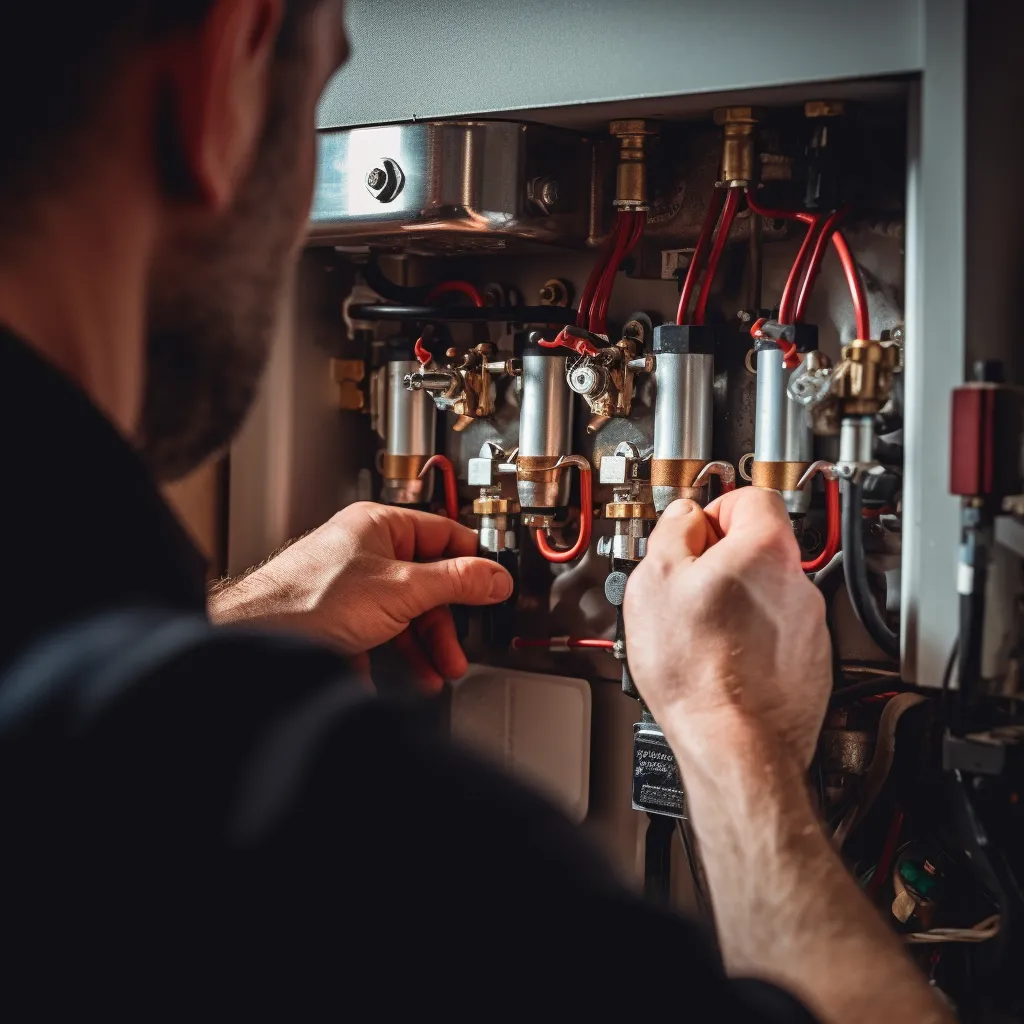
The tank is leaking
If you happen to spot a leak in your water heater, it could potentially stem from a defective pressure relief valve or a corroded tank. Here are the necessary steps to tackle this issue:
Verify the functionality of the pressure relief valve. If it is found to be leaking or failing to release pressure as expected, there may be a need for its replacement. To ensure a proper replacement, consult the manufacturer's instructions or consider seeking the expertise of a professional.
Conduct a comprehensive examination of the tank, paying close attention to any indications of corrosion, such as rust or deterioration. If you happen to spot any corrosion or damage, it is of utmost importance to promptly replace the tank to prevent any further leaks or potential failures.
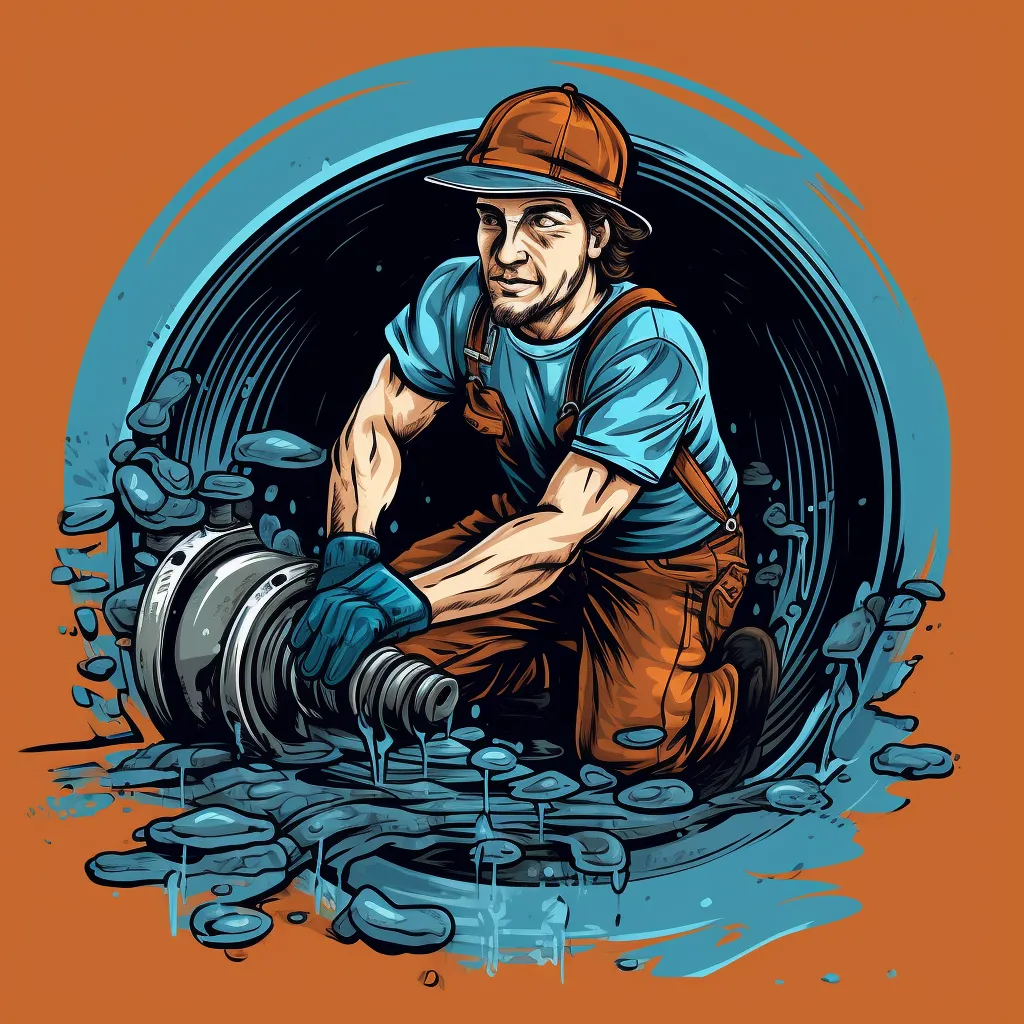
The water is discolored
The presence of discolored water coming from your water heater may be an indicator that it requires flushing and descaling.
Verify whether the pressure relief valve requires replacement. A malfunctioning valve can lead to issues and may necessitate professional replacement.
Use a blend of white vinegar and water for the purpose of flushing the water heater. This process aids in the removal of sediment and the reduction of mineral buildup, consequently enhancing its overall performance.
Carefully inspect the anode rod for any indications of deterioration or corrosion. In the event that corrosion is indeed present, it is advisable to replace the anode rod to prevent any further damage from occurring.
If necessary, get in touch with a professional to carry out a comprehensive descaling treatment.

The water smells foul
When confronted with tank problems in your water heater resulting from bacteria buildup, follow these steps:
Arrange for a professional inspection of the tank to ascertain whether it requires replacement.
Flush the water heater using a solution comprising white vinegar and water to mitigate any unpleasant odors.
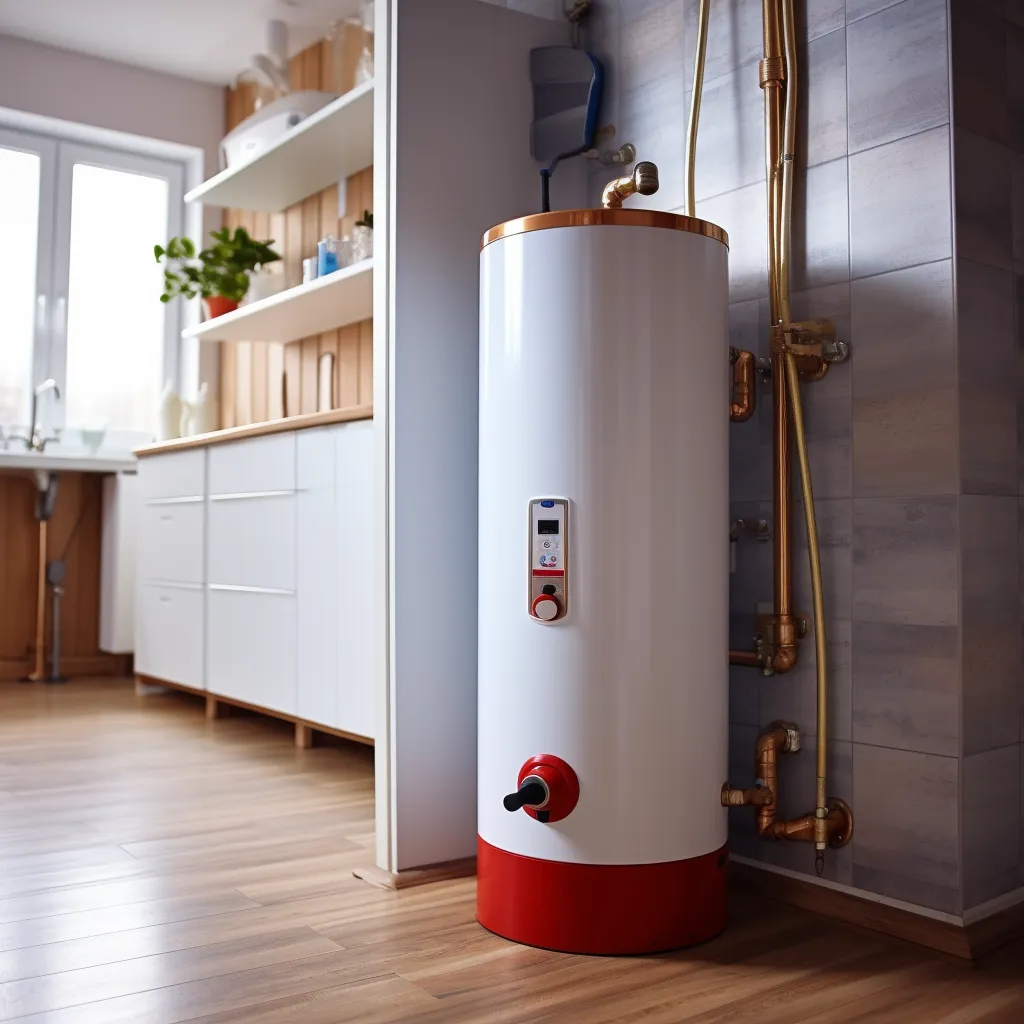
Noisy water heater
If you are hearing unusual noises emanating from your water heater, these disturbances may arise from sediment buildup or loose components. To address these concerns, follow these steps:
Regularly perform a water heater flush: To manage sediment buildup effectively, make it a routine to flush your water heater by draining the tank to eliminate any accumulated sediment.
Examine internal components: Reach out to a licensed plumber to thoroughly inspect all the internal components of your water heater. They will verify that all parts are appropriately secured and tightened.
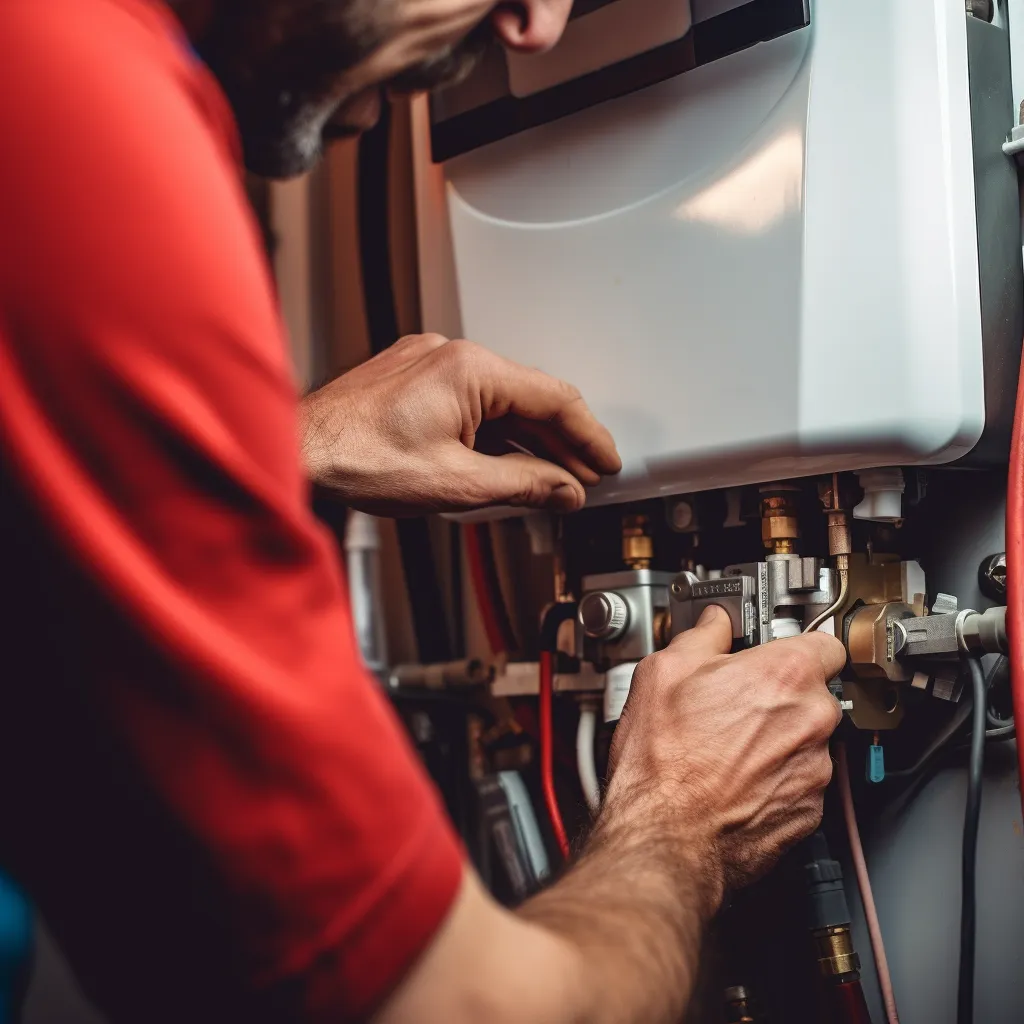
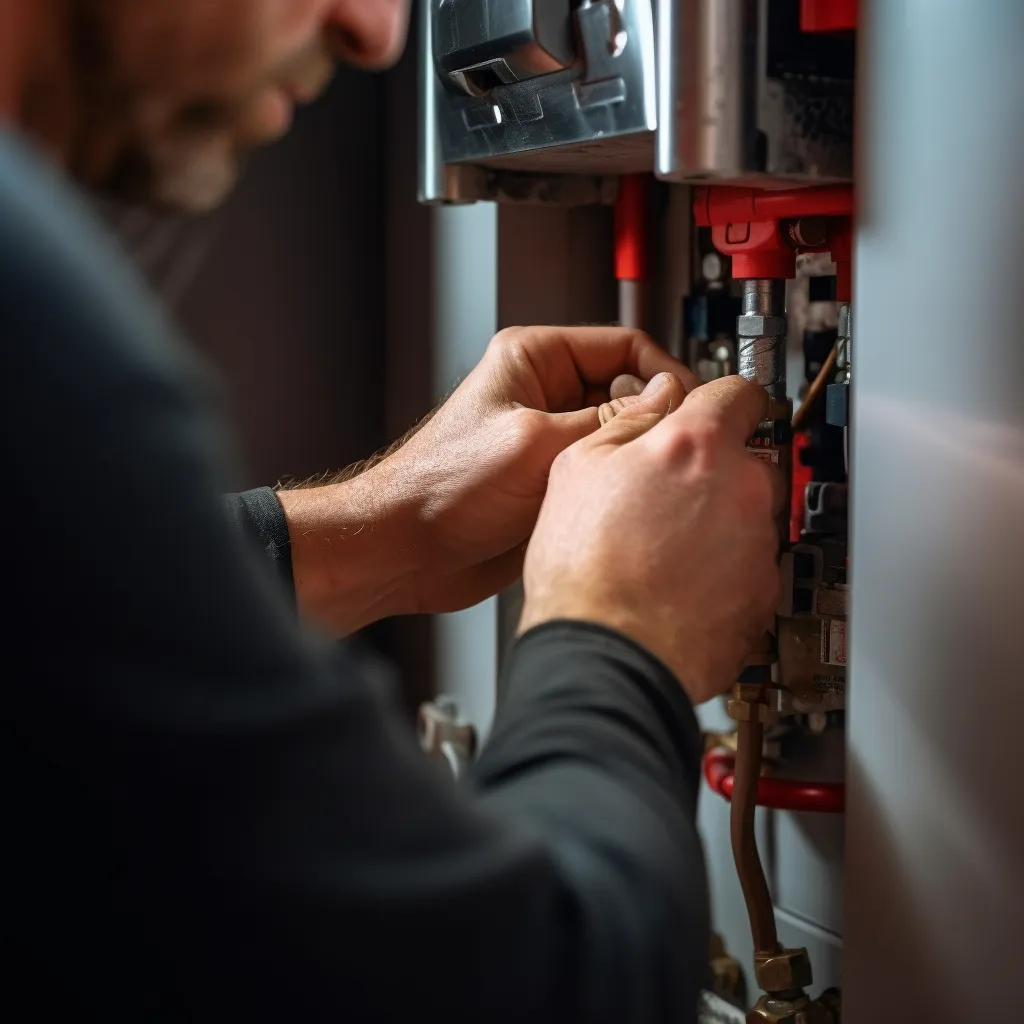
Extended duration for water reheating
When your tank water heater is taking an excessively long time to reheat, various factors may contribute to this issue. These factors could include a malfunctioning thermostat, an inadequately sized tank, or mineral buildup. To tackle the problem, consider the following steps:
Ensure that the thermostat is configured to your preferred temperature setting, and make adjustments if needed.
If you're experiencing water that isn't heating up as expected, a malfunctioning thermostat could be the root cause.
Arrange for a professional to inspect the tank for mineral buildup. Over time, minerals can accumulate and impede the heating process.
If you consistently find yourself running out of hot water, it could be a sign that your current water heater tank is undersized for the demands of your household.
Low hot water pressure
When confronted with low hot water pressure, the issue may stem from having a small hot water tank or a leaky plumbing system. To address this concern, consider the following steps:

Make certain your hot water tank is adequately sized to accommodate the hot water requirements of all the outlets in your home. If it is determined to be undersized, contemplate upgrading to a larger tank to enhance hot water pressure.
Engage the services of a professional plumber to conduct a thorough inspection of your plumbing system for any leaks. Leaks can contribute to a decrease in hot water pressure. If any leaks are identified, they can be repaired to restore proper water flow.
Verify that the pressure relief valve is operating correctly. This valve is specifically designed to release excess pressure from the tank.

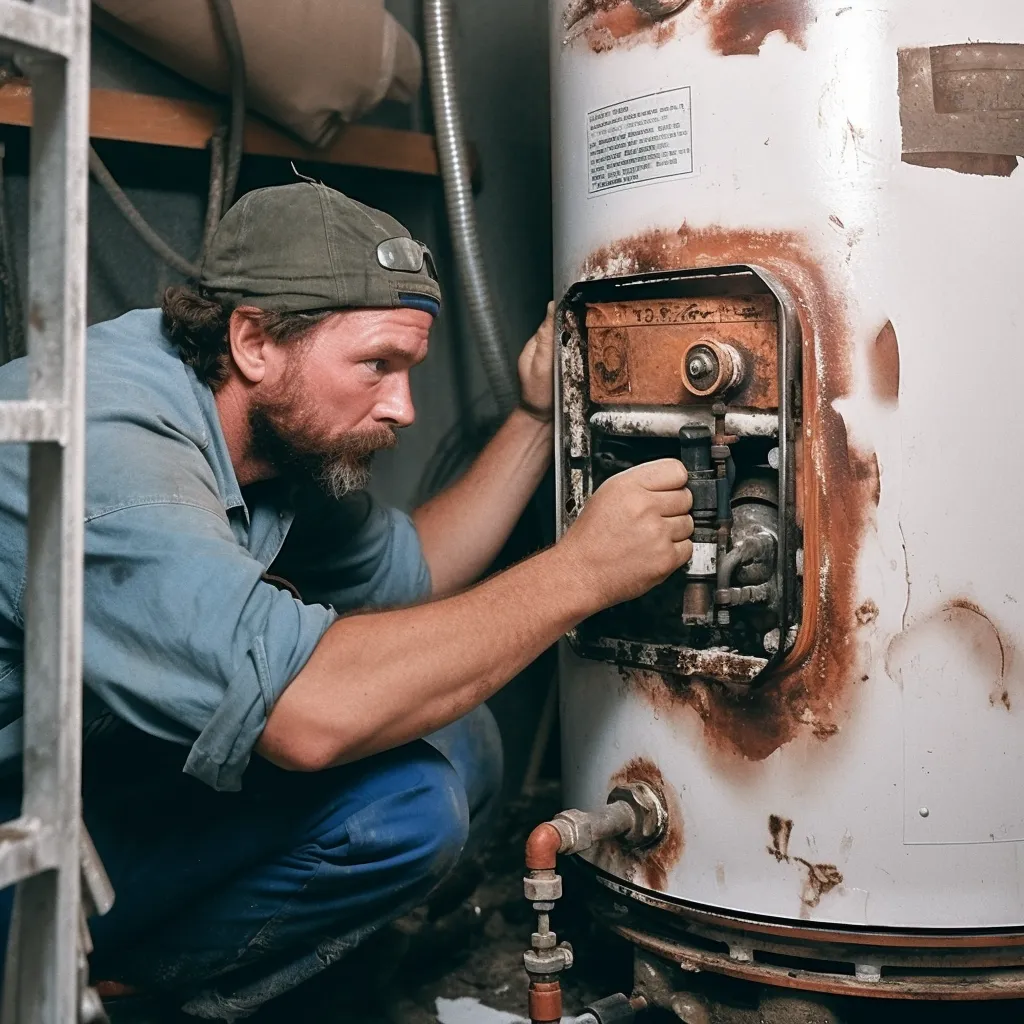
Low supply of hot water
When you find yourself dealing with a limited supply of hot water that cools down rapidly, various factors may be contributing to this problem, including a malfunctioning thermostat, an insufficiently sized tank, or obstructed pipes. Here are some troubleshooting tips to help resolve the issue:
Examine the functionality of your water heater's thermostat: Confirm that it is operating correctly by checking if it is set to the desired temperature and effectively controlling the heating element.
Arrange for a licensed professional to conduct an inspection of your water heater, which may include descaling if necessary.
If your present water heater tank is incapable of meeting your hot water requirements, contemplate upgrading to a larger tank that can better accommodate your needs.
Ways to prevent future water heater problems
To safeguard against future problems with your water heater, you should:

Regularly examine your water heater for signs of wear and corrosion.
Perform routine tank flushing to eliminate sediment accumulation.
Regularly inspect valves and fittings for any signs of leaks.
Replace the anode rod every few years to mitigate the risk of corrosion.
Arrange for professional descaling or annual servicing as part of your maintenance schedule.
Select the correct water heater size to align with your specific needs.
Set the temperature to the recommended settings.
Insulate pipes to minimize heat loss.
Contemplate opting for energy-efficient models to decrease energy consumption.
Swiftly address and repair any leaks.
Become acquainted with the location of the shutoff valve.

Although it is advisable to seek professional assistance when uncertain about repair or maintenance tasks, adhering to these fundamental steps can assist in maintaining your water heater's optimal condition and averting potential issues. Make sure you do not fall for common water heater myths.
Understand when it's necessary to call a licensed plumber for assistance
In the realm of household maintenance, consulting a professional for uncertain repair tasks is wise. To maintain your water heater's optimal condition and avert potential issues, follow steps mentioned above.
What to look for in a licensed plumber
When opting for a certified plumber, meticulous research is crucial. Delve into the intricacies and weigh these pivotal considerations:
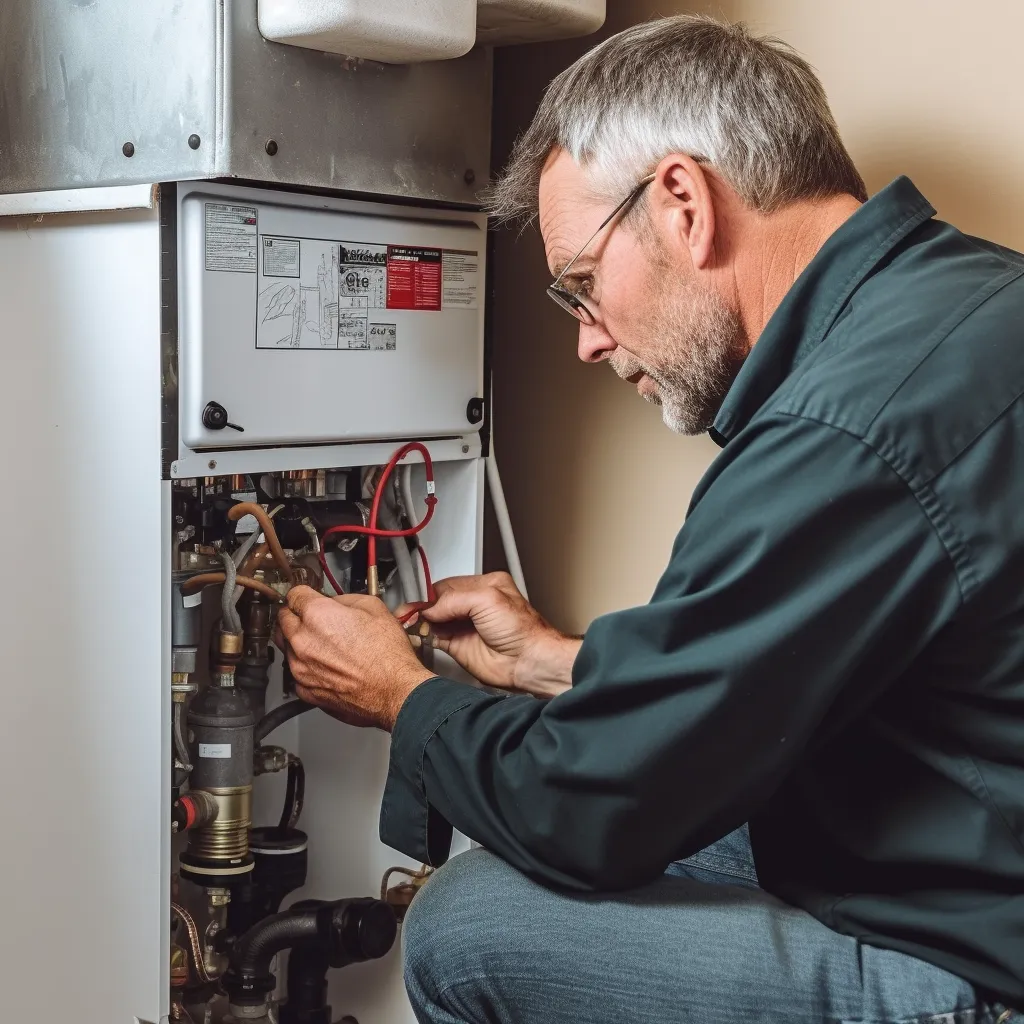
License and Insurance: Verify that the plumber possesses the requisite licensing and insurance to operate within your locality. This guarantees your peace of mind and offers a protective shield.
Experience and Specialization: Seek out a plumber with a wealth of experience and a distinct focus on water heater repair and maintenance. They will possess the requisite expertise to adeptly address your unique requirements.
Service Assurances and Immediate Availability in Emergencies: Ask the plumber regarding any service warranties they extend. Furthermore, assess their readiness during urgent circumstances to secure dependable support when the need arises.
Effective Communication: Select a plumber renowned for effective communication and the lucid elucidation of their work's intricacies. This guarantees your comprehensive comprehension of the services rendered, encompassing any requisite repairs or maintenance.
Reach out to an experienced professional
If you're facing problems with your water heater, it's essential to address them promptly for a well-functioning household. Check out our home page to know more. The best course of action is to get in touch with a licensed plumber who can inspect the unit and provide reliable solutions. By following these suggestions and seeking professional help, you can overcome water heater difficulties and maintain a smoothly running water heating system. For further assistance or advice, reach out to an experienced plumber who can assess your water heater and recommend effective solutions for restoring its functionality.
Contact Us
GET IN FULL TOUCH
PHONE:+(480) 470-3216
EMAIL:
adam@waterheaterchandler.com
Mil-Spec LLC
Chandler, AZ 85226


